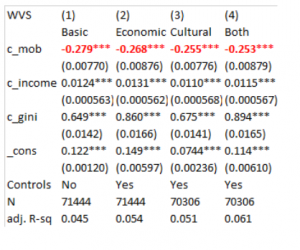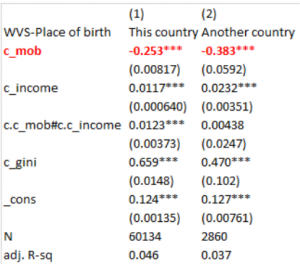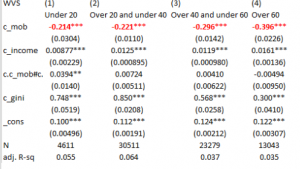Mihajlo Ivanovic ’22 and professor Benjamin Ho
Over the summer I was working with Professor Benjamin Ho in the economics department regarding the effects of economic mobility on the prosocial behavior. The goal of the project was to determine if the individual’s ability to move up or down through the social classes changes one’s chance to engage in prosocial behavior such as donating or volunteering.
I was working with four data sets, three of them including cross-national data with more than 30 countries and one representative data from the U.S In the beginning of the project I was doing OLS regressions without restrictions in order to determine the coefficients on mobility and to observe the changes in coefficients as we added more independent variables such as GDP growth, education, index on corruption, etc. We used a dependent variable that showed if a person volunteered in the past month/year, depending on the dataset. Since economic mobility is actually lower as the coefficient increases (1 represents the lowest mobility, whereas 0 represents the highest mobility), our case negative coefficients actually show a positive relationship between economic mobility and prosocial behavior. In the picture below we can see that the coefficients on mobility are large and significant.
Restrictions that resulted in consistent results were the place of birth restriction (those born outside of the country they reside in have larger coefficient), age restriction (as you get older the coefficient on mobility increases), and trust restriction (those that trust more have larger coefficients). Furthermore, since our measurements of the mobility are on country-level rather than individual-level, a mixed effects model was used to observe the behavior of the coefficients. After running the melogit and metobit models, we found that economic mobility is still a significant variable and that the restrictions mentioned above, still hold.
Since past researchers have focused mostly on income and inequality as the main independent variables, the effect of economic mobility on prosocial behavior is the undiscovered effect with the potential of large implications on debates regarding social impacts of resource distribution.



